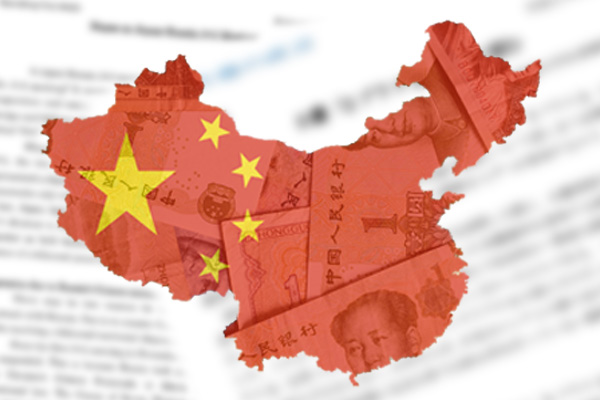China's financial sector is shaking as a major nonbank trust company has become insolvent. The Xi Jinping government has no means to prevent the crisis from escalating. In the worst case, it could lead to a global financial crisis comparable to the 2008 crisis triggered by the failure of Lehman Brothers in the United States.
China's central bank, the People's Bank of China, classifies investment and loans by all Chinese financial institutions as "total social financing." In Japanese yen, the nonbank financial institutions amount to some 2,700 trillion yen, which far exceeds 2,121 trillion yen in Japan’s broadly defined liquidity covering cash and deposits, bonds, trusts, and other financial instruments (as of the end of July). At the core of the nonbank financial sector are trust companies. Beijing-based Zhongzhi Enterprise Group, one of the largest trust companies, and its affiliate Zhongrong International Trust Co. based in Harbin failed to make due payments in June and July.
“Time bomb" that could cause a chain of explosions
Although the Xi government has restricted media coverage about Zhongzhi and Zhongrong, three listed companies as investors disclosed the failure in compliance with regulations on August 11. On the previous day, U.S. President Joe Biden described China's economy as a "ticking time bomb" at a rally of his supporters. “That’s not good because when bad folks have problems, they do bad things," he warned.
The White House should have known the Chinese situation in advance through some route. In U.S. dollars, China’s domestic financial size totaled $38 trillion in 2022, overwhelming the U.S. size at $21 trillion. A turbulence in such financial superpower will spill over to the United States and the rest of the world. Moreover, KPMG, a major U.S. accounting consultancy, was suddenly hired in mid-July to review the balance sheet of Zhongzhi business group including Zhongrong.
The “ticking time bomb" may represent a perfect description. Even a relatively small explosion within the huge Chinese financial world could cause a chain of explosions, leading to a large-scale financial crisis. The 2008 global financial crisis that was caused by the bankruptcy of Lehman Brothers in September was sparked by the bankruptcy of a mid-sized U.S. investment fund in March. The fact that China’s housing bubble burst was behind Zhongzhi’s financial trouble also reminds us of the similarity with the 2008 crisis.
Potential prolonged deflation
The Xi government seems unable to stop the progress of the bubble burst that underlies the current crisis. While the decisive measure may be massive increase in funds by the People's Bank of China, there is a limit. As the flow of foreign currency as the source for central bank fund issuance has declined dramatically, massive central bank issuance could trigger the Chinese yuan’s free fall.
Without an increase in central bank fund issuance, the government may have difficulties in issuing bonds for fiscal stimulus. Meanwhile, the Xi government's supervision of the financial sector is very lax. The State Financial Supervisory Administration has left Zhongzhi business group to resolve the trouble. In the midst of government inaction, only the financial crisis will make progress. China may thus plunge into a long-term deflationary recession, as did Japan in the wake of the burst of asset bubbles in the early 1990s.
Hideo Tamura is a Planning Committee member at the Japan Institute for National Fundamentals and a columnist for the Sankei Shimbun newspaper.


